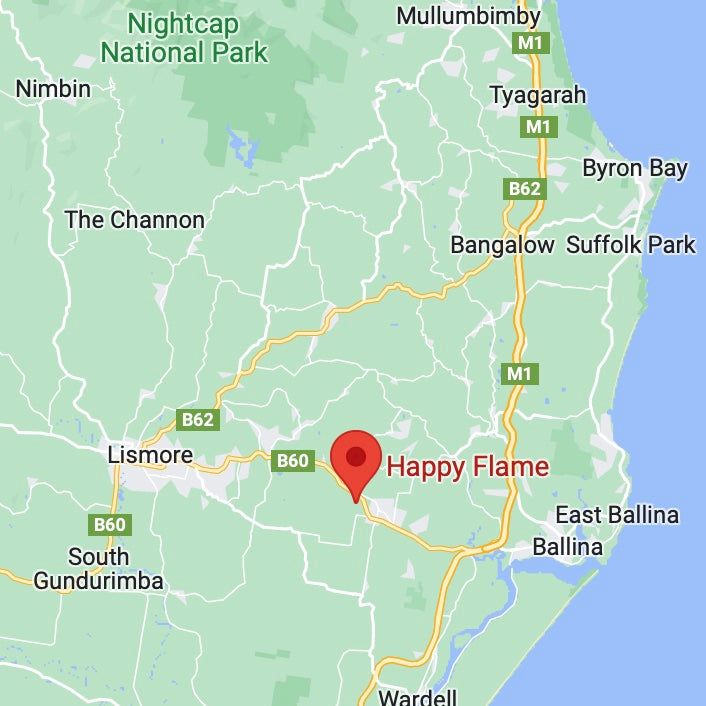Our choice to be a small business and what it really means to shop local?
As most of you know by now, we are a small business by choice. In the business world, the primary measurement of success is all about growth – and the bigger, the better, the larger, the more value it has. Yet, this is not our experience. For us, the value of a small business is all about maintaining a direct connection to our customers and suppliers (yes, genuine human contact), handcrafting quality products that are individual and distinctive, and taking feedback and adapting to what our customers (you) need. This is why we are a small business by choice.
Do you make a point of shopping local? What about shopping locally? While they might sound the same, there's an important distinction for us. When we say “shopping local,” we’re referring to the practice of buying directly from stores in your community. But when we say “shopping locally,” we’re talking about buying from locally-owned small businesses, and there is a big difference. With Australian small businesses being some of the hardest hit during the last few years, many are set to feel the lasting effects for years to come; it's encouraging that research reveals that 71 per cent of Australians feel that their connection with their local business is stronger now than it was before as a result of the health restrictions.
For us at Happy Flame, this is what it means to shop from locally-owned businesses:
- Building Local Economies through small business
While many people take pride in ‘shopping locally’ and include large retailers such as Woolworths or Target in this group arguing that local businesses employ local people, the fact is, besides employee wages and benefits, the vast amount of their revenues go everywhere but the local community. In contrast, most revenue in locally-owned businesses stays in the local community. Research shows that three times as much money remains in your community when shopping at a locally-owned business compared to shopping at a large chain store. And for us, not only are we enamoured by our local staff, but also know that in employing them, it filters down to their families and children, not to mention our local beekeepers, their families, the bees they support and the environment that is nurtured by the bees themselves. When we consider a small business in this light, we are reminded that each of us in our small business is involved in a web of local relationships, between people, yes, but also the other species on which we depend, including bees, plants and the microbial world. Small businesses highlight the connectivity of this life of ours.
- Reducing The Carbon Footprint
Three words: long haul transport. In Australia, we have, up till our recent turn of lockdown events, grown accustomed to having all products - always. Even when it’s out of season or coming from halfway around the world. The date on the calendar is irrelevant to most people. Yet the consumption of long-haul industrial products fails to be considered an ethical problem for most of us – or even bad manners, for that matter. Take food, for example. Did you know that the average Australian shopping basket contains foods that, when combined, have travelled up to twice the Earth's circumference – over 70,000 km? The meal on your average dinner plate has travelled around 2000 km from field to fork, much farther than most of us go on our Christmas holidays. And this is the same for most consumer products. Energy wastage, out-of-season ingredients, irradiation, and heavy fuel emissions all impact the environment. In contrast, most local small businesses tend to make more local purchases, which requires far less transportation, less pollution, traffic, habitat loss and resource depletion.
- Handcrafted Quality Artisan Product
Handmaking is definitely for small businesses. It allows us to focus our attention on the details and craft the highest quality products. At the heart of every handmade item lies the beautiful artistry of labour. It is a collection of skill, time, and effort that carefully forms a product. The feeling of a large batch, same-design, factory-made products from overseas, doesn't begin to come close to the warmth put into handcrafted beeswax, skilfully transforming it into candles that provide light, soothe the senses and alleviate the weight of grief, loss, anxiety and stress.
Handmade products are also a gift to the environment as they are less wasteful; they use long-lasting materials that provide strength and durability while being an extension of nature and thus decomposing back into the Earth. When you choose local handmade products, you choose to benefit the planet’s health and consciously do your part in shaping a greener today. With every handmade item, we also lower our carbon footprint on the planet and sustain eco-friendly livelihoods that unite to respect the Earth’s resources.
- Giving Back to The Local Community
Small businesses play a vital role in supporting local community charities, causes and events. And for us here at Happy Flame, we are also known for adding an extra candle or two to customer orders that we know need extra care during a particular joyful event or crisis occurring in their lives. That we can do this is at the heart of being a small, ethical business.
- Better Customer Service
When it comes to a small business owner, all purchases and reviews matter. We value our customers because what you say about us and our products matters. Our very livelihood hangs on the happiness of our services and products. Also, be rest assured that if you have a quandary, you won’t be hashing it out with a robot.
So, this, our dear friends, is what it means to shop local and shop at locally-owned businesses like us here at Happy Flame. Fortunately, people like you still believe in small businesses like ours.
From our team, to you - thank you.
Footnote: 1. Small Business Fandom, Research by Antenna,


